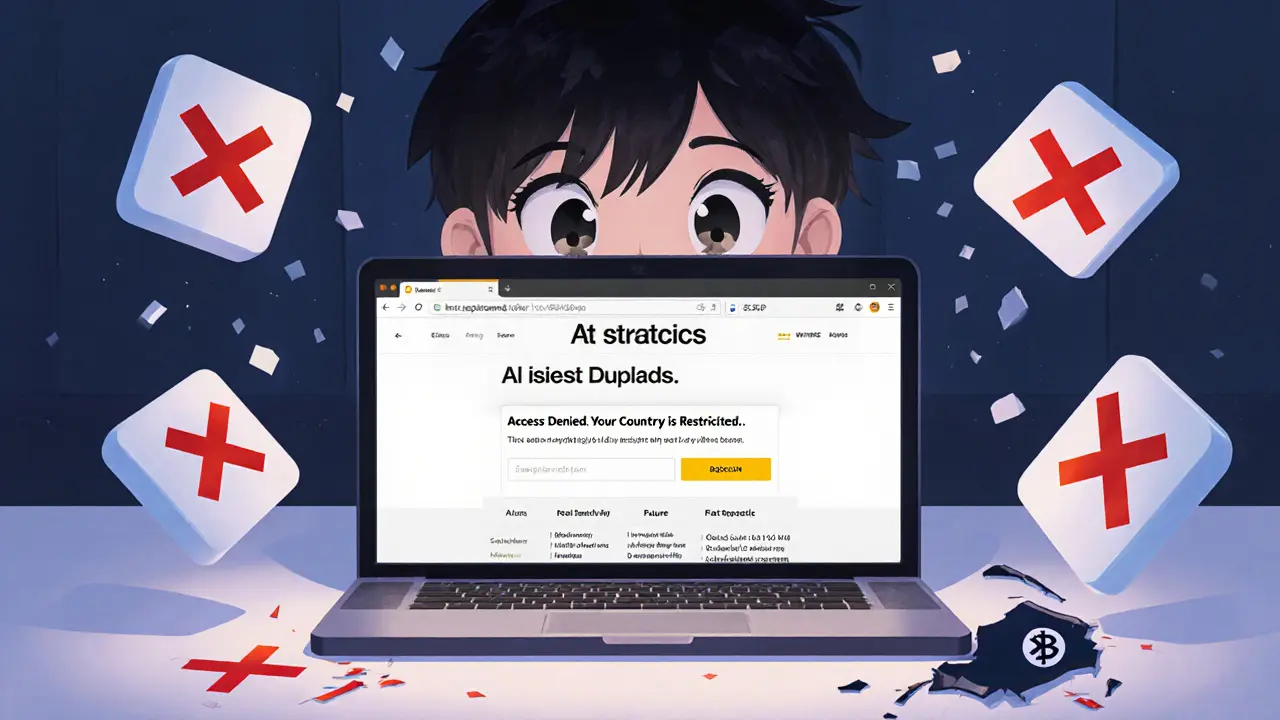Binance Restricted Countries: Where You Can't Trade and Why
When you try to log into Binance, the world’s largest crypto exchange by volume. Also known as Binance.com, it the go-to platform for trading Bitcoin, Ethereum, and thousands of altcoins. But if you’re in one of the countries where Binance is blocked, you won’t even get past the login screen. This isn’t a glitch—it’s compliance. Binance pulls out of regions where local laws clash with its global model, especially around licensing, KYC rules, and financial oversight. The Central Bank of Egypt, the main financial regulator in Egypt, and agencies like Iran’s Central Bank of Iran, which enforces strict mining and crypto reporting rules don’t allow foreign exchanges to operate without heavy control. That’s why Binance can’t just show up and start serving users everywhere.
It’s not just about banning users. Countries like Egypt, Iran, North Korea, and the United States (for certain services) each have their own reasons. In Egypt, banks monitor crypto transactions under 2020 banking laws to prevent money laundering. In Iran, the state demands data transparency from miners and controls energy use. The U.S. doesn’t outright ban Binance, but it forces the company to split into Binance.com (global) and Binance.US (limited features, strict KYC). Other places like Australia restrict privacy coins on exchanges, and Indonesia sees Binance competing with local platforms like Indodax—leading to pressure for local licensing. These aren’t random decisions. They’re responses to national security, tax collection, and financial sovereignty.
What’s missing from most lists is the real impact. If you’re in a restricted country, you’re not just losing access to low fees and high liquidity—you’re losing access to stablecoin trading, fiat on-ramps, and even basic wallet security features. Some users turn to P2P platforms or offshore exchanges, but those come with their own risks: no customer support, no chargebacks, and often no legal recourse. The list of restricted countries changes often. What’s blocked today might be allowed tomorrow if regulations shift. But right now, if you’re in a country with strict capital controls or anti-crypto sentiment, Binance simply won’t let you in. Below, you’ll find real reviews and breakdowns of exchanges that fill the gap—some with no KYC, others with local fiat support, and a few that are outright scams pretending to be alternatives. Know what you’re getting into before you click.
